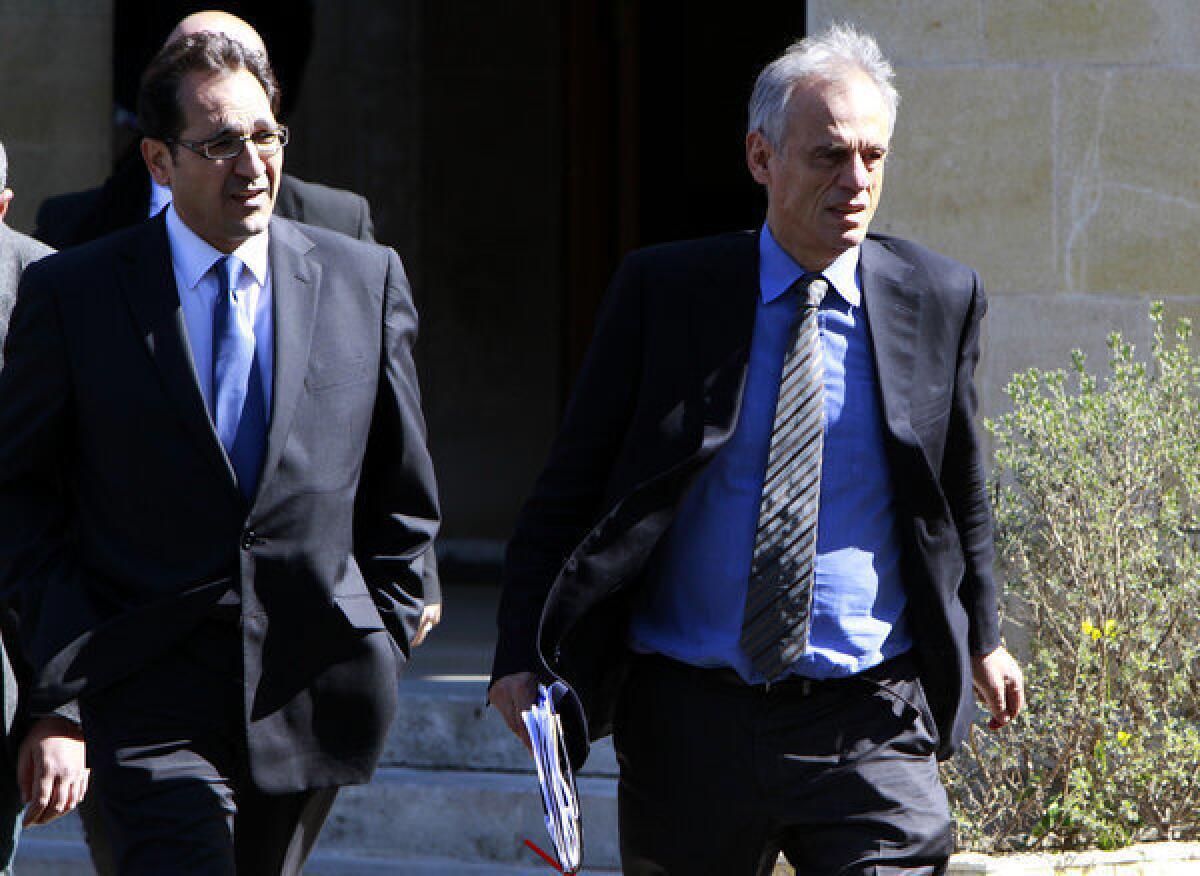Cyprus postpones vote on controversial bailout package

- Share via
ATHENS – Cyprus’ parliament has pushed back debate of a controversial bailout that would force savers to pay a levy of up to nearly 10% on bank deposits in exchange for a $13-billion international aid package to avert a chaotic government default.
The urgent debate, set to take place late Sunday, was rescheduled for Monday after Cyprus’ newly elected President Nicos Anastasiades canceled an informal meeting of lawmakers amid growing political tension over the aid package, state media reported from Nicosia, the capital.
Facing potential bank runs and outflows of capital, the government also ordered banks to remain shut Tuesday and Wednesday. Monday is a bank holiday.
On Saturday, angry depositors lined up at banks and cash machines around the tiny Mediterranean island to withdraw their money ahead of the proposed tax.
Under the bailout plan, announced after marathon talks between European officials in Brussels early Saturday, holders of accounts with more than $130,000 will be taxed at 9.9%. Those with less will be subject to a 6.75% levy. The proposal would raise nearly $7.8 billion for the near-bankrupt nation.
Cyprus was driven to request the bailout package because its outsized banking sector -- which is worth eight times the country’s gross domestic product -- was heavily exposed to Greek debt. Greece was the first Eurozone country to require financial rescue by its neighbors, followed by Ireland and Portugal. Spain, too, has had to apply for European aid to rescue its ailing banks.
Although the Cypriot economy is tiny, European officials fear that letting the country go under would set off a chain reaction across the 17-nation Eurozone.
But critics say the plan to cream off money from private deposits would set a dangerous precedent.
“Not only will we see massive outflows of cash from the island,” said Panayiotis Petrakis, economics professor at Athens University, “but this punitive-like action and break from previous bailout schemes will create moral issues.”
A favored tax haven for Russian oligarchs, Cyprus first turned to the European Union and International Monetary Fund for aid last summer. But talks have proved difficult.
Although Anastasiades publicly ruled out an agreement to lenders’ initial proposal of 40% levies on deposits, he conceded over the weekend that refusal of a bailout would lead Cyprus to a chaotic collapse.
ALSO:
Brazilian support for an Argentine pope
Pope Francis delivers first public blessing, calls for ‘mercy’
President Obama plans listening mission in Israel, West Bank
More to Read
Sign up for Essential California
The most important California stories and recommendations in your inbox every morning.
You may occasionally receive promotional content from the Los Angeles Times.










